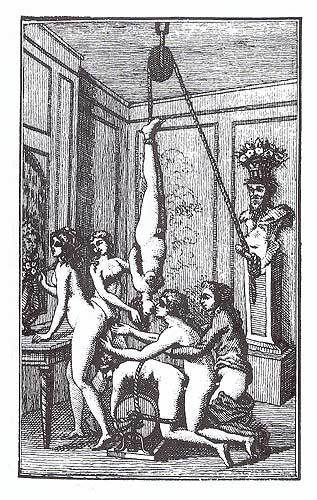 Ilustração de uma versão holandesa de Juliette, do Marquês de Sade
Ilustração de uma versão holandesa de Juliette, do Marquês de Sadehttp://i63.photobucket.com/albums/h146/pxj464/Juliette_Sade_Dutch.jpg
"Aí por certo reside o princípio dessa «libertinagem» que foi a última do mundo ocidental (depois dela começa a idade da sexualidade): o libertino é aquele que, obedecendo a todas as fantasias do desejo e a cada um dos seus furores, pode mas deve também aclarar o menor dos seus movimentos mediante uma representação lúcida e voluntariamente levada a cabo. Há uma ordem estrita da vida libertina: toda a representação deve animar-se logo no corpo vivo do desejo, todo o desejo deve enunciar-se na pura luz de um discurso representativo. Daí essa sucessão rígida de «cenas» (a cena, em Sade, é o desregramento ordenado pela representação) e, no interior das cenas, o equilíbrio cuidadoso entre a combinatória dos corpos e o encadeamento das razões."
(Foucault, As Palavras e as Coisas)


